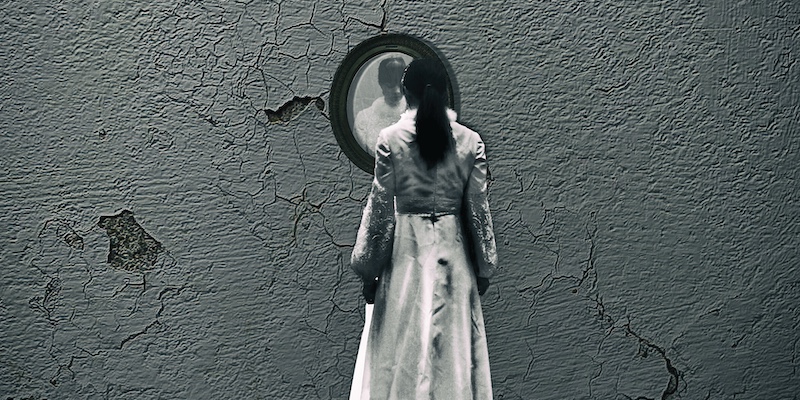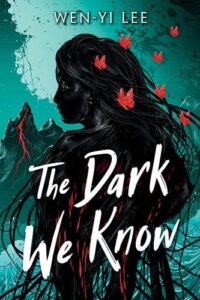Ghosts at their definition are an aftermath. They have always represented the unresolved, be it grief, guilt, unfulfillment, or injustice. They represent something that came before; as a result, ghosts are such powerful sites for conversations about loss: we all carry once-wases and could’ve beens.
But a haunting specifically requires a subject; it is an interaction that makes a ghost tangible in the real world by the touches it leaves. A haunting is the touch of something that came before you. A haunting is a relationship. Whether taken on, or fostered upon you.
In Mike Flanagan’s TV adaptation of Hill House, the haunting is not just the experience of the house itself, but the echoes left in the years and miles after. The horror isn’t so much the ghosts as the ghosts they further create, literally and metaphorically, in this estranged family in the wake of their mother’s death. If we speak of hauntings as a relationship, family is the most fundamental relationship we experience. It is the only relationship you do not choose, you cannot truly leave, and to which you are physically bound. It is very like the characters of a story who enter life in their new mansion only to understand they’re stuck with its demons.
In some horrors, you fear invasion. Home is sanctuary and the terror is of what lurks beyond, trying to break it. But more often than not, this pressure is also a catalyst that reveals the ugly fractures of the inhabitants, sometimes resulting in them killing each other off: see The Witch (2015). So now we move into the dimension of horror in which the fear is not of outsiders, but of what exists within its inhabitants. What sort of ghosts have they in fact always lived with, and what role might they have played in its creation?
*
Most haunted houses are about a family in some way. (Flanagan’s Hill House, crucially, is not about the house but about the family that builds and runs from it.) The inescapability of family is the foundation of its potential horror. We are bound to family whether we like it or not; the fact of our bloodlines will follow us wherever we go. There’s a lot of existential terror to mine from that. You can inherit goodness or you can inherit the worst of them, having been literally created from them. With family, you are the haunted house. You are the wallpaper they distort, the doors they lock, the mirrors they appear in. Grappling with family is grappling with afters: you have already been made. Now you must go on from there.
In my novel The Dark We Know, runaway artist Isadora Chang comes home for an inheritance. She needs the money from her abusive dad’s passing to keep living out in art school in the city. But returning to the secluded small town she swore never to go near again digs up a whole host of graves, including her tense relationship with her silent, cooped-up mother and the religious community she grew up in. The Dark We Know is as much about real ghosts as it is about the metaphorical ones she’s been left with. I thought about secrets, trauma, shame, neglect, insecurity, fear, guilt; passed from communities to their children, parents to their offspring, from older sibling to younger. What elders give or refuse to give their kids can keep them alive, or kill them. In one moment, Isadora thinks that she has inherited her mother’s silence, and what she fears most is that she is fated to become her mother. That is their tragedy, as Wilde says.
We talk a lot these days about mental health, identifying traumas, breaking cycles and examining institutions. We’re talking about a lot more internal wounds and tracing them backward. Unsurprisingly, generational trauma and what we inherit from the way we grew up has become a much bigger theme, and with it, a surge of interest in the gothic.
The gothic as a genre is about the skeletons in the family’s closet. It is a genre about the decay of the moneyed estate as a result and reflection of a buried darkness–Rochester’s wife in the attic, etc. The classic opulent manor or closed estate of these stories also represents its inhabitants in a way; its deterioration is their deterioration. Gothic’s ghosts are in its walls and family tree, often left for a newcomer–a disruptor of the status quo–to unearth or demand the wrongness of. It is about families that have been their own undoing, and about asking the inhabitants to finally, properly, look at the rooms around them.
It’s a perfect vehicle for a hidden darkness passed through generations from some original sin. Its characters are often concerned with preserving that sanctity of their home, and by representation, their family and bloodline, and so the revelation that all this rests on rotten foundations is a critique of that righteous purity.
At the same time, we’re also talking about inherited trauma on a societal scale, trauma imposed by forces of war, colonial violence, slavery, genocide, patriarchy, capitalism. As the horror genre sees more voices from marginalized and underrepresented communities, we also see generational trauma from parents and ancestors who experienced wide systemic suffering–Mexican Gothic and She is a Haunting, for example, make full use of that aforementioned gothic setting to ask where that opulent estate came from in the first place, and whose blood was required to build it. Parasite subverted the home invasion trope to comment on class: built on the exploitation of the poor, the sanctity of the home was rotten to begin with. The Yellow Wallpaper is a classic in which a wife locked up for her “hysterical tendencies” actually goes mad as a result. In these gothics, the manor is not symbolic of merely individual greed and arrogance but of systemic oppression.
I think ghosts have a natural kinship with themes of marginality, since they’re literally liminal, usually considered dark and unwelcome and unpleasant disruptions to the otherwise well-ordered hierarchy of life and death, past and present. A lot of marginal perspectives resonate with monstrous figures. Minorities too often are made to feel like they are the ghost decaying the ancestral manor, and I think that’s a fascinating undercurrent as we start seeing more diverse claims to the genre.
*
And then, what to do about the haunting put upon you? I also find myself resonating with mental illness and strain as a form of possession. It feels like it takes over you, gets in the way of a life. In my experience, depression has felt like being taken from myself, or else an emptiness waiting for something to fill it. There are times I would probably have liked an exorcism.
Still. We may be born into a home of ghosts, but I want to write towards moving out. I reject, I think, the idea of inescapability, or at least invulnerability–I write towards being able to find your ghosts, and your mother’s, and hers, and either confronting them or making peace. I don’t believe in resigning yourself to haunting. I think there are windows in every house and you must open them.
I always knew what the ending of The Dark We Know would be. Overcoming, and crucially, it was about being able to let go. To break cycles, to come to terms with loss, to let go of pasts you cannot return to and live for the coming instead. To release oneself from yearning for the love of those who do not love you. To find strength instead in those that do.
It’s a hopeful ending; I hope it’s an ending for everyone.
***


















